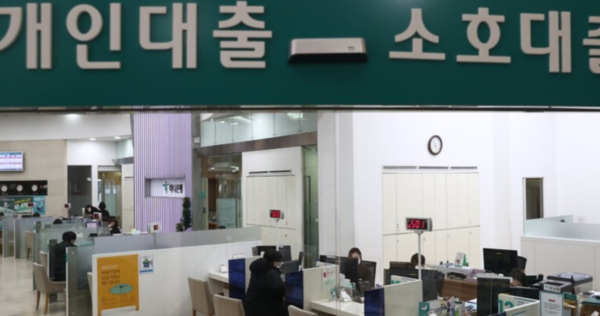Enter 2021.03.10 12:00
Home mortgage loan +6.4 trillion won, other loans +0.3 trillion won
Personal’debt investment’ stagnated due to the KOSPI adjustment
Last month, bank household loans surpassed 1,000 trillion won for the first time in history based on the balance. This is the result of accelerating the increase in household loans as the demand for real estate, such as the rise of jeonse prices, overlaps with’young-eul’ loans and’debt investments’, which draws even credit loans due to the boom in the stock market.
As the demand for home sales contracts and jeonse funds increased, the balance of mortgage loans increased by more than 6 trillion won, the second largest increase in history as of February. On the other hand, after the KOSPI exceeded 3000, it entered a long adjustment period, and Donghak ants”debt struggles’ seemed to be stagnating.

Looking at the sub-categories, the balance of the mortgage loan as of the end of February was 73.39 trillion won, which was 6.4 trillion won in one month. It is the second largest ever since February last year (7.8 trillion won). The increase in jeonse funds increased by 1 trillion won from 2.4 trillion won to 3.4 trillion won in a month.
The continued increase in mortgage loans is due to the steady increase in apartment sales across the country. The nationwide apartment sales volume increased to 67,000 units in October, 89,000 units in November, and 83,000 units in December, but decreased slightly to 62,000 units in January.
An official from the BOK said, “The increase in home mortgage loans usually takes 2-3 months from the date of the contract to reflect the time difference, but it was affected by a huge amount of sales around December of last year.” The season factor was reflected because it was Lee’s chul on the back,” he explained.
The balance of other household loans including credit loans at the end of February was 26.9 trillion won, an increase of 300 billion won compared to January. The increase was reduced due to the inflow of bonuses for the Lunar New Year and slowing demand for funds related to stock investment.
The net purchase of individual stocks increased by 25 trillion won in January, but declined to 9.6 trillion won in February.
In the KOSPI, rising factors such as US economic stimulus expectations and improvement of domestic and overseas economic indicators and downward factors such as rising interest rates in major countries are mixed, and the KOSPI is showing a significant fluctuation (2976 at the end of Feb. As the adjustment is prolonged, demand for individual stock investment is slowing. A BOK official explained, “This is also a big seasonal factor. Last month, the amount of loans decreased due to the large influx of Lunar New Year bonuses, and the demand for stock investment funds decreased as stock prices were adjusted.”
Corporate loans increased by 8.9 trillion won. Large enterprises increased by 600 billion won. The seasonal factor of re-treatment of loans that had been temporarily repaid at the end of the year disappeared, and the issuance of corporate bonds increased, which increased slightly. For SMEs, loans increased by 840 trillion won as a result of financial support from banks and policy financial institutions.
Bank deposits were net outflows of about 1,210 trillion won in January, but net inflows of 38.3 trillion won in February. Occasional deposits and deposits amounted to 35.5 trillion won from corporate settlement funds, local government grants, and household fund deposits, while periodic deposits amounted to 2.6 trillion won due to attracting funds to manage regulatory ratios at some banks.
On the other hand, funds were leaked to all asset management companies. Net inflows of 4.900 trillion won and 1.5 trillion won, respectively, to bond-type funds and equity-type funds, respectively, due to the attraction of corporate funds, but declined by 8 trillion won in money market funds (MMF). This is the effect of recovering national treasury funds for fiscal execution.
